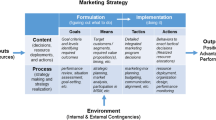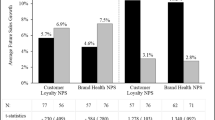“Great things in business are not done by one person; they are done by a team of people.” Steve Jobs (2002)
“Apple’s stock has fluctuated on concerns about Mr. Jobs’ health for more than a year.” Joseph Menn and Richard Waters (2009)
Abstract
Steve Jobs of Apple, Inc., is one of the best known CEOs in the world, and some stock analysts have termed him “irreplaceable.” Using conventional event study methods, we test the magnitude of these announcements on Apple’s share price and its market capitalization. We focus upon nine “events” between 2004 and 2009 in which new information about Mr. Jobs’ health was flushed into the marketplace, on occasion by Apple itself, but more often by the commentary and speculations of media observers, stock analysts and bloggers. We find that the impact of these announcements upon Apple share prices is mixed, usually modest, and disappears over time. We conclude that Jobs’ health has an impact on Apple’s share price and market capitalization, but that impact is not always negative and not nearly as large as many observers apparently believe.
Similar content being viewed by others
Notes
Apparently Munster changed his mind. He previously stated in 2007 that if Jobs were to leave Apple that “It would be a disaster. He would be almost impossible to replace.” (Guglielmo 2007).
The NASDAQ index was used as an estimate of the market return. Our results are materially unchanged using other indexes such as the Dow Jones index, or indexes limited to technology firms.
Table 1 results are based on a 30-day trading day estimation window between May 28, 2010 and July 13, 2010. The period was chosen to avoid contamination that otherwise might have occurred because of Apple’s earnings announcement on July 14, 2004. By itself, this latter event resulted in an abnormal stock return. A regression using a 30-day trading day estimation window between June 18, 2004 and July 30,2004 (which includes the abnormal earning event July 15, 2004 trading day) resulted in a DAR on the first day in the event period of -2.72% (p = 0.305). Using the intervention method (Hakala 2010) to control for the July 15, 2004 announcement and also using the June 18-July 30 estimation window resulted in a first day DAR of -2.67% (p = 0.318).
One could argue that the August 2, 2004 and the June 22, 2008 events might have been viewed as positive news about Jobs’ health because he was not in extremis. The August 2 event news was that Jobs had a treatable form of pancreatic cancer and the June 22, 2008 event news was an announcement by Apple claiming that Jobs’ health was not impaired. If we set these two events aside, our estimates of the impact of Jobs’ health on Apple’s market capitalization are not materially changed. We estimate that the remaining seven “health” events reduced Apple’s market capitalization by $1.8 billion.
The abnormal return is positive, not negative, for the event where the p-value is below the 0.10 threshold and above the 0.05 threshold positive.
References
Apple Insider. (2010). (March 28), http://www.appleinsider.com/articles/10/03/28/apples_steve_jobs_named_worlds_most_valuable_ceo.html.
Armitage, S. (1995). Event study methods and evidence on their performance. Journal of Economic Surveys, 8(4), 25–52.
Baldwin, C. (2009). Jobs may spark move in apple shares on monday. http://www.reuters.com/article/ousivMolt/idUSTRE55408520090606.
Ball, R., & Brown, P. (1968). An empirical evaluation of accounting income numbers. Journal of Accounting Research, 6(4), 159–178.
Bary, A. (2007). The World’s Best CEOs. (March 26), http://online.barrons.com/article/SB117469289796447454.html.
Bary, A. (2010). The Best CEOs. (March 29), http://online.barrons.com/article/SB126964409156568321.html.
BBC News. (2009). Apple’s Jobs admits poor health. January 5. http://news.bbc.co.uk/2/hi/technology/7811857.stm.
Bicheno, S. (2009). Nothing to See Here. http://channel.hexus.net/content/item.php?item=16736.
Binder, J. J. (1998). The event study methodology since 1969. Review of Quantitative Finance and Accounting, 11(2), 111–137.
Blodget, H. (2008). Does Apple’s Steve Jobs Have Cancer Again? (June 10), http://www.businessinsider.com/2008/5/does-apple-s-steve-jobs-have-cancer-again.
Bowman, R. (1983). Understanding and conducting event studies. Journal of Business Finance and Accounting, 10(4), 561–584.
Brealey, R., & Myers, S. (2003). Principles of Corporate Finance (7th ed.). New York: McGraw-Hill/Irvin.
Buffett, W. (2009). Quoted in “Apple Should Have Disclosed Jobs’ Transplant, Buffett Says.” http://www.bloomberg.com/apps/news?pid=20601087&sid=ahB_YmpWUynA.
Dolley, J. (1933). Characteristics and procedure of common stock split-ups. Harvard Business Review, 11(4), 316–326.
Fama, E., et al. (1969). The adjustment of stock prices to new information. International Economic Review, 10(1), 1–21.
Fox, F. (2009). Is Steve Jobs’ Health Essential to Apple’s Future? http://lowendmac.com/ed/fox/09ff/steve-jobs-health.html.
Fried, I. 2004. “Jobs Has Surgery for Cancer.” CNET News (August 1), http://news.cnet.com/Jobs-has-surgery-for-cancer/2100-1047_3-5292388.html.
Goldman, J. (2008). Mac Faithful Become iPhone Faithful, CNBC.com, (June 9), http://www.cnbc.com/id/25059927/site/14081545?__source=yahoo%7Cheadline%7Cquote%7Ctext%7C&par=yahoo.
Guglielmo, C. (2007). Apple’s Steve Jobs Is Company’s $20 Billion Asset, Bloomberg.com (January 17), http://www.bloomberg.com/apps/news?pid=newsarchive&sid=aeipw6x_6Mhs.
Hakala, S. (2010). http://works.bepress.com/cgi/viewcontent.cgi?article=1003&context=scott_hakala.
Jobs, S. (2002). 60 Min. (December 12), http://cnettv.cnet.com/60-minutes-steve-jobs/9742-1_53-50004696.html).
Kahney, L. (2006). Has Steve Jobs Lost His Magic?. Cult of Mac. Wired News. http://www.wired.com/gadgets/mac/commentary/cultofmac/2006/08/71557.
Knight Ridder/Tribune. (2004). Apple CEO Steve Jobs’ rare variety of pancreas cancer is one of most curable. McClatchy-Tribune Information Services. (August 12), HighBeam Research. http://www.highbeam.com.
Krazit, T. (2008). Jobs Hid Cancer Diagnosis for 9 Months. (March 4), http://news.cnet.com/8301-13579_3-9886077-37.html.
Krazit, T. (2009). http://news.cnet.com/steve-jobs-health-now-a-public-matter.
Krivin, D., Patton, R., Rose, E., & Tabak, D. (2003). Determination of the Appropriate Event Window Length in Individual Stock Event Studies (November 4) (8), Available at SSRN: http://ssrn.com/abstract=466161 or doi:10.2139/ssrn.466161.
Los Angeles Times. (2008). Steve, Have You Lost Weight? Analyzing the Apple Chief’s BMI. (June 10), http://latimesblogs.latimes.com/technology/2008/06/reading-steve-j.html.
Macnn.com. (2009). AAPL Trades Over $100; Jobs Not Essential? (September 2), www.macnn.com/articles/09/02/09/fears.on.jobs.role.fading/.
MacKinlay, A. (1997). event studies in economics and finance. Journal of Economic Literature, 35(1), 13–39.
Markoff, J. (2008). The guessing game has begun on the next iPhone. New York Times (May 28). http://www.nytimes.com/2008/05/28/technology/28apple.html.
Marshall, B. (2009). Quoted in Jobs May Spark Move in Apple Shares on Monday. New York Times on the Web (June 6), www.nytimes.com.
McWilliams, A., & Siegel, D. (1997). Event studies in management research: theoretical and empirical issues. Academy of Management Journal, 40(4), 626–657.
Munster, G. (2009). Quoted in Analysts Believe Tim Cook Is More Essential to Apple Than Steve Jobs. http://news.techwhack.com/10541-tim-cook.
Menn, J., & Waters, R. (2009). Jobs back in the job but avoids spotlight. Financial Times (June 23), 14.
Nocera, J. (2008). Apple’s culture of secrecy. New York Times on the Web (July 26), www.nytimes.com.
Perez, S. (2008). Steve Jobs Had no Heart Attack…And Citizen Journalism Just Failed. Read Write Web. (October 3), http://www.readwriteweb.com/archives/steve_jobs_had_no_heart_attack_citizen_journalism_failed.php.
Rider Research. (2004). Surgery Puts Jobs Out for August. The Online Reporter. HighBeam Research (August 7), http://www.highbeam.com.
Salinger, M. (1992). Standard errors in event studies. Journal of Financial and Quantitative Analysis, 27(1), 39–53.
Stone, B. (2008). Apple’s Chief to Skip Macworld, Fueling Speculation. New York Times. (December 17), http://www.nytimes.com/2008/12/17/technology/companies/17apple.html?ref=technology
Wikipedia. (2010). Steve Jobs. http://en.wikipedia.org/wiki/Steve_Jobs.
Author information
Authors and Affiliations
Corresponding author
Rights and permissions
About this article
Cite this article
Koch, J.V., Fenili, R.N. & Cebula, R.J. Do Investors Care if Steve Jobs is Healthy?. Atl Econ J 39, 59–70 (2011). https://doi.org/10.1007/s11293-010-9261-z
Published:
Issue Date:
DOI: https://doi.org/10.1007/s11293-010-9261-z




